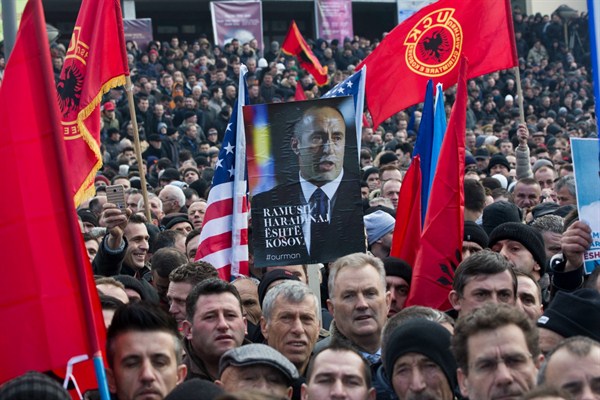Kosovo is planning to hold snap parliamentary elections on Sunday, one month after Prime Minister Isa Mustafa lost a no-confidence motion. As Reuters notes, Kosovo has experienced considerable political turbulence in the past 18 months, with parliament being targeted by riots, tear gas and even a rocket-propelled grenade. In an email interview, Florian Bieber, professor of Southeast European history and politics at the University of Graz in Austria and coordinator of the Balkans in Europe Policy Advisory Group, explains what the vote is expected to bring and how it might affect diplomatic initiatives such as ongoing talks with Serbia.
WPR: What are the main factors behind the recent turmoil in Kosovo’s parliament, and why did lawmakers vote to dismiss the government?
Bieber: The government was never much more than a marriage of convenience between two parties: the Democratic League of Kosovo, or LDK, founded by Ibrahim Rugova, Kosovo’s first president; and the Democratic Party of Kosovo, or PDK, which was founded by Hashim Thaci, Kosovo’s current president and a former leader of the Kosovo Liberation Army, a paramilitary organization that operated during the war. The LDK claims to represent a more urban electorate, whereas the PDK draws on its legacy of fighting for liberation.

